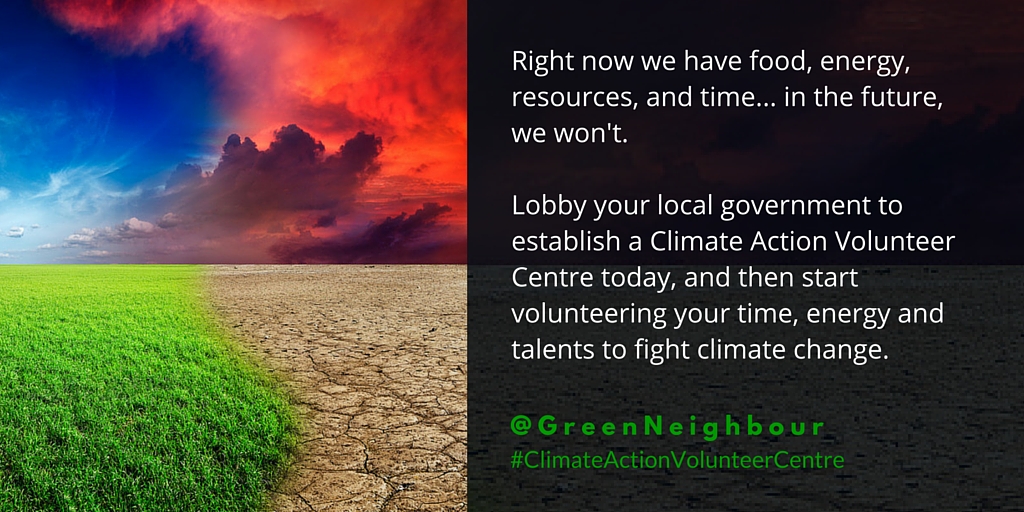Harnessing the Collective Power of Seven Billion Souls May Be the Only Answer to Climate Change5/23/2016 Right now we have food, energy, resources, and time... in the future, we won't. As the world's climate heats up, more of the world's resources will be directed toward providing for the world's increasing demand for food, while at the same time the world itself will become less capable of supplying this food (Impact of climate change on food, 2016). People will have less disposable income, less nutrition, and all around lower levels of physical energy, strength, and stamina.
Harnessing the collective power of world's population today may be our best chance to fight climate change and to avert what may be the most challenging positive feedback loop the world has ever known. Positive Feedback Loops and Climate Change A positive feedback loop is a sequence of events that give rise to subsequent events that then further promote the very events that set the loop into action. Thus, a positive feedback loop will tend to grow unabated until something external to the loop reverses or extinguishes the sequence of events (What are climate change feedback loops?, 2013). As the world's climate heats up, permafrost in the north will melt, releasing vast amounts of heretofore frozen methane into the Earth's atmosphere. At the same time, arctic ice will continue to melt, further diminishing precious hectares of the Earth's historically reflective white surface. As this all happens, the world becomes hotter, and the cycle continues (Impacts of a Warming Arctic, 2014). Notwithstanding the vast number of the world's population that barely eek out an existence, the world does find itself with the largest population of healthy, wealthy, educated, and resourceful human beings that it has ever known (World is healthier, richer than ever before, 2011). Harnessing the vast potential of this population within an coordinated and effective framework may represent the world's best chance of fighting climate change. Taking Action Of the 196 countries in the world today, 162 have submitted Intended Nationally Determined Contributions (INDCs) to the United Nation's Framework Convention on Climate Change (INDCs, 2015). More countries will be adding their action plans in the near future. All of these governments will be scrambling to find the funds to support their respective contributions to fighting climate change. Now is the time for action: not just from governments, but from us... from you and me. Now is the time for the people of the world to say, "I don't need to be paid to save my planet." Send your governments this clear message of hope, today. Lobby your local and national governments to establish Climate Action Volunteer Centres in your region, and then start volunteering your time, energy, and talents to fighting climate change. You can do this in just a few seconds by tweeting your governments one of the following messages: Right now we have food, energy, resources, and time... in the future, we won't. Establish a #ClimateActionVolunteerCentre today. Today we have food, energy, resources, and time: in the future, we won't. Establish a #ClimateActionVolunteerCentre today. Today we have food, energy, resources, and time: in the future, we won't. Volunteer at a #ClimateActionVolunteerCentre today. Alternatively, you can tweet out any message using the hashtags #ClimateActionVolunteerCentre or #ClimateActionVolunteerCentres. Climate Reality Project Canada, a charitable organization serving as the Canadian component of the global Climate Reality Project, has made some progress in this area. Climate Reality Project Canada is currently establishing "Community Climate Hubs" in cities across Canada. It's great to see that these hubs are getting established. However, the critical gap that these hubs still need to bridge is the connection between awareness and action. At the moment, most of their activity is geared towards education, raising awareness, and lobbying municipal governments. To be sure, the Community Climate Hub Handbook does include a goal of developing action plans. We just need to see a point where plans and volunteers can meet in an effort to produce tangible impacts on climate change. Hopefully, we will see these hubs become accelerators of genuine climate action in the very near future. As is the case with most things, together we are stronger. I hope you will consider devoting some of your time and energy to fighting climate change, today. For more ideas on how to make a difference to climate change within your own home, please take a moment to examine some lifestyle changes you could implement today. References "Impacts of a Warming Arctic - Climate Change - Nasa." 2014. 23 May. 2016 <http://climate.nasa.gov/resources/education/pbs_modules/lesson2Engage/> "Impact of climate change on food production could cause over ..." 2016. 23 May. 2016 <http://www.oxfordmartin.ox.ac.uk/news/201601_Climate_food_production> "INDCs - Intended Nationally Determined Contributions - unfccc." 2015. 24 May. 2016 <http://unfccc.int/focus/indc_portal/items/8766.php> "U.N.: World is healthier, richer than ever before - Salon.com." 2011. 23 May. 2016 <http://www.salon.com/2010/11/04/un_un_world_development/> "What are climate change feedback loops? | Environment | The Guardian." 2013. 23 May. 2016 <http://www.theguardian.com/environment/2011/jan/05/climate-change-feedback-loops>
0 Comments
Leave a Reply. |
Green NeighbourWhen it comes to the environment, we are all neighbours. Archives
November 2022
Categories
All
|

 RSS Feed
RSS Feed